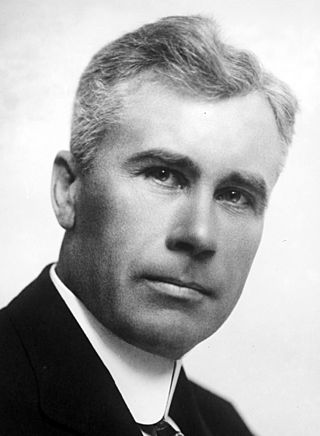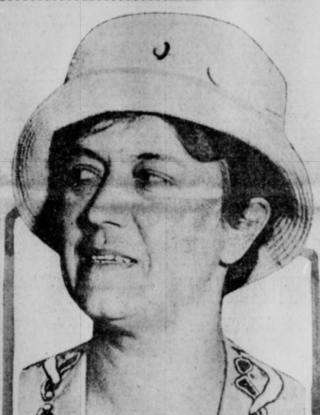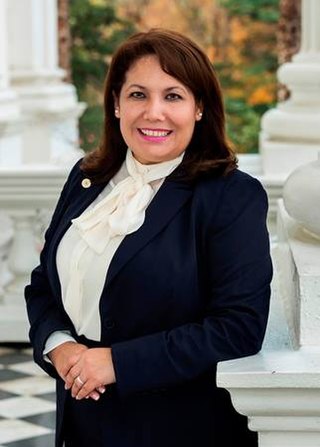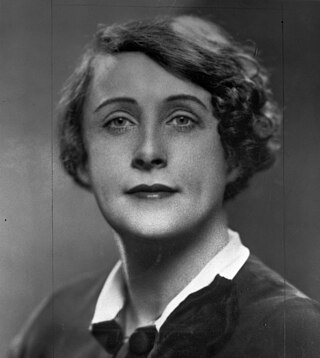Related Research Articles

The Los Angeles City Council is the lawmaking body for the city government of Los Angeles, California, the second largest city in the United States. It has 15 members who each represent the 15 city council districts that are spread throughout the city's 501 square miles of land.

Yvonne Pearl Burke is an American politician and lawyer from California. She was the first African-American woman to represent the West Coast in Congress. She served in the U.S. Congress from 1973–1979. She represented the 2nd District on the Los Angeles County Board of Supervisors from 1992–2008. She served as Chair of Los Angeles County four times and served as chair pro tem three times.

Jacqueline Barbara Goldberg is an American politician, activist and former educator who served as a member of the Los Angeles Unified School District Board of Education for District 5 from 2019 until 2024. Previously serving as a board member from 1983 until 1991, Goldberg has also served as a member of the Los Angeles City Council and the California State Assembly.

Rosalind Wiener Wyman was an American politician, Los Angeles City Councilmember, and California Democratic political figure who, at 22 years old, was the youngest person ever elected to the Los Angeles City Council, and only the second woman to serve there. Her City Council tenure ran 12 years, representing the city's Fifth District. Wyman was highly influential in bringing the Brooklyn Dodgers from New York to Chavez Ravine, Los Angeles. She helped lead the successful campaigns of U.S. Senator Dianne Feinstein (D-Calif.) and in 2019, was reported to be California's oldest DNC delegate.

Charles Hiram Randall was an American newspaper publisher and politician in Los Angeles, California. He represented the city in the California State Assembly from 1911 to 1913 and the U.S. House of Representatives from 1915 to 1921. He was the only Prohibition Party candidate ever elected to Congress. He also served on the Los Angeles City Council from 1925 until 1933 and as President of the City Council for his final term from 1931 to 1933. In 1926, he was the first council member to face a recall election under the present city charter.

Leonore Cohn Annenberg, also known as Lee Annenberg, was an American businesswoman, diplomat, and philanthropist. She was noted for serving as Chief of Protocol of the United States from 1981 to 1982. Annenberg was married to Walter Annenberg, who was an Ambassador to the United Kingdom and newspaper publisher. She also served as the chairman and president of the Annenberg Foundation from 2002 until 2009.

Marian C. Bergeson was an American politician from California. A Republican, she became the first woman to serve in both the California State Assembly and California State Senate, she was a member of the California State Legislature from 1978 to 1995, a member of the Orange County Board of Supervisors from 1995 to 1996, and California State Secretary of Education from 1996 to 1999. In 1986, Marian Bergeson Elementary School in Laguna Niguel was named after her.
Christine "Chris" Essel is the President of Southern California Grantmakers (SCG), a regional association of philanthropic leaders whose mission is to support and advance effective, responsible philanthropy for the public good.

Arthur Alber was an attorney and a member of the Los Angeles, California, City Council from 1927 to 1929.

Harriett Davenport was an American politician who served on the Los Angeles City Council for the 12th district from 1953 to 1955 after Ed J. Davenport's death. She was appointed by the City Council and served for a brief time before retiring due to her sister's ill health.

Estelle Lawton Lindsey was a 20th-century journalist who was also the first female City Council member in Los Angeles, California, (1915–17) the first woman to preside over the City Council there and the first woman to act as mayor in any American city of comparable size.

Walter Scott Moore was the president of the Los Angeles, California, Common Council in 1883–84 and chief engineer of the city's Fire Department at the turn of the 19th-20th centuries. He was ousted during an investigation into fraud in the department. He was the Republican candidate for California Secretary of State in 1886 and also ran for the state Senate.

Austin Conrad Shafer was a schoolteacher, property owner and real estate agent who served on the Los Angeles, California, Common Council, the legislative branch of the city, in the 19th century and was president of that city's school board.
Otto Guenther Weyse was an American liquor and wine dealer in 19th-century Los Angeles. He was a member of the Los Angeles Common Council and was instrumental in bringing a visiting San Francisco opera company to Los Angeles. He was noted statewide as a man who sent his child to Mexico during a prolonged and "sensational" divorce battle with his French-born heiress wife.
Frank H. Howard was an American attorney who was president of the Los Angeles County Board of Education and a member of the Los Angeles City Library Board and a trustee of the county law library. He represented the city librarian when she sued a Methodist minister for slander over a prayer he had recited. Howard disappeared without a trace in 1896.

Patty López is a Mexican-American politician and member of the San Fernando, California city council. She was a former member of the California State Assembly, representing the 39th district, encompassing parts of the San Fernando Valley. She is a Democrat. Prior to being elected to the Assembly, she was a community representative for the North Valley Occupational Center-Aviation Center. After serving in the Assembly, she ran for a seat on the Los Angeles Unified School District Board of Education, but did not make the run-off election.

Fay E. Allen was the first ever African American to serve on the board of the Los Angeles Unified School District (LAUSD). She served two terms between 1939 and 1943. After she left the board, she continued to be politically active until her death.

Mab Copland Lineman, LL.B., was an American attorney, noted for her work with business and protective law, commonly known as "Law of Common Things".

A special election to the United States House of Representatives for California's 25th congressional district was held March 3, 2020, the same day as the California presidential primaries. As no candidate received a majority, a runoff took place on May 12, 2020, between the top two finishers Christy Smith and Mike Garcia. Garcia's win was the first time Republicans flipped a Democratic-held House seat in California since 1998.

The 2022 Los Angeles elections were held on June 7, 2022. Voters elected candidates in a nonpartisan primary, with runoff elections scheduled for November 8, 2022. Eight of the fifteen seats in the City Council were up for election while three of the seven seats in the LAUSD Board of Education were up for election. The seat of Mayor of Los Angeles was up for election due to incumbent Eric Garcetti's term limit. The seats of the Los Angeles City Controller and the Los Angeles City Attorney were also up for election, as their incumbents, Mike Feuer and Ron Galperin, were running for mayor and California State Controller respectively.
References
- 1 2 3 "Passes Beyond Great Divide," Los Angeles Times, December 28, 1915, page 16
- ↑ "Death Record," Los Angeles Times, April 18, 1897, page 12
- ↑ "Illness of Mrs. M. Hughes," Los Angeles Times, January 11, 1902, page 8
- ↑ "Affection: Follows Mother," Los Angeles Times, May 3, 1916, page II-10
- ↑ "New Society Formed," Los Angeles Herald, April 12, 1895, page 10
- 1 2 "The Rights of Woman: Eligible to All Educational Offices in California," Los Angeles Times, June 28, 1892, page 5
- ↑ "Still at Outs: The Differences in the School Board Still Not Settled," Los Angeles Times, September 8, 1891, page 8
- ↑ "The School Board: The Long Fight Over the Vacant Place Settled at Last," Los Angeles Times, September 29, 1891, page 5
- ↑ "Suing for Her Seat," Los Angeles Times, October 14, 1891, page 3
- ↑ "Will Take Her Seat," Los Angeles Herald, June 28, 1892, page 8
- ↑ "The School Board: Mrs. Hughes Takes Her Seat as a Member," Los Angeles Times, July 6, 1892, page 2
- ↑ "The School Board: The Successor of Superintendent Friesner Elected," Los Angeles Times, June 13, 1893, page 8